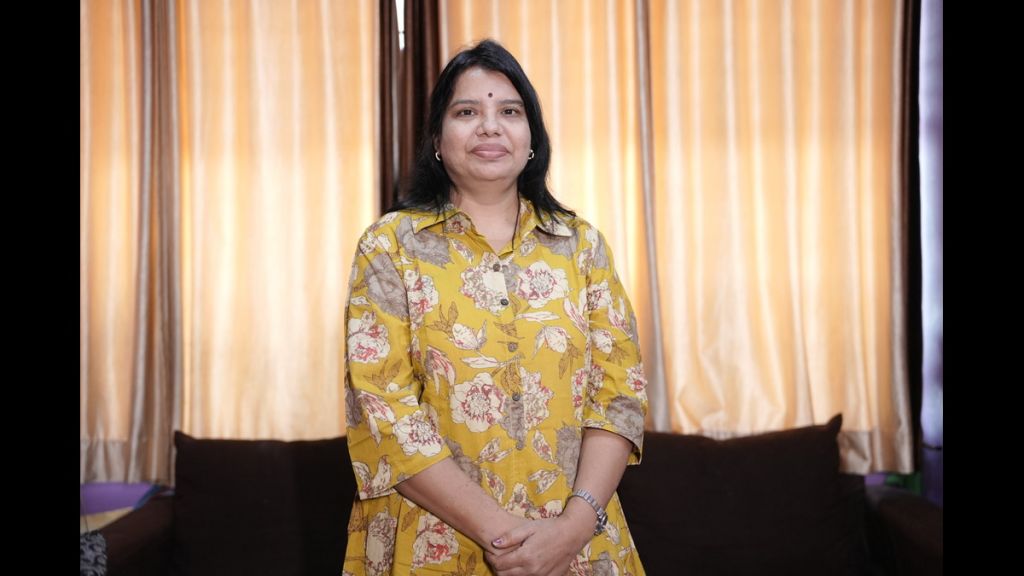

They say children learn from their parents, and also give direction to the personality traits of the young ones. Vikhroli resident Manisha Katke grew up watching her mother helping women in her neighbourhood, an experience that impacted her deeply. So after she got married and started her own family, she converted her mother’s motivation into action and started the Savitri Mahila Samaj Vikas Sanstha (SMSVS).
Prior to establishing this NGO, Katke, over the years, had started 30 ‘Bachat Gats’ or self-help groups consisting of 10 women each, as well as three ‘Shejar Samitis’ (small federations of self-help groups, totally comprising 150 women). These women’s collectives that worked to provide the women dignified livelihoods eventually culminated into the formation of the SMSVS in 2014.
The idea was to provide women with work opportunities, with a particular focus on women willing to learn new skills and put in a few work hours every day. “The women who have joined me predominantly come from the slums of Kurla and Chandivali, where I have observed that they are discouraged from taking up work, but they persevered, nonetheless,” says Katke.
Katke has been training these women to make handbags, sunglass cases, laptop sleeves, sling bags, jewellery boxes and traditional clutch bags out of cloth. “But I understand that hundreds of women can’t make the same kind of products, so I have been training them to make agarbattis, face masks, phenyl, jute bags, kurtis, jackets, cotton and ethnic jewellery, toran, papad, pickles and spices, among other products,” shares Katke, whose work has spanned over 17 years.
In order to teach the women newer skills, she learns how to make many of these products by researching online and trying various instructional videos.
Additionally, with the help of State Bank of India, she helped several of these SHGs secure loans, and also arranged for new sewing machines for them. “The women from the slums really gave their best and through the skill training at the organisation, today, have managed to see their kids through schools, which have opened better work avenues for the next generation,” she says.
The products are sold at various places like the civic body’s corporate offices, exhibition stalls, multinational offices, banks etc. Several women also sell the phenyl that they sell directly to big hotels. The making of these products and the skill training sessions take place at a centre near Chandivali and Kurla, a space provided by the BMC. The products made by these women have not only been sold across the nation, but also in Italy, France, Dubai and Australia.
Seema Upadhayaya, Special Associate (CSR), State Bank Of India, who has known of Manisha’s work since 2009, says that she has been relentless in her goal to empower women. “She has managed to generate revenue for herself as well as women from the slum neighbourhoods, enabling women empowerment and financial security. Her work during the time of COVID-19 was especially commendable, as there was practically no source of income for most women.”